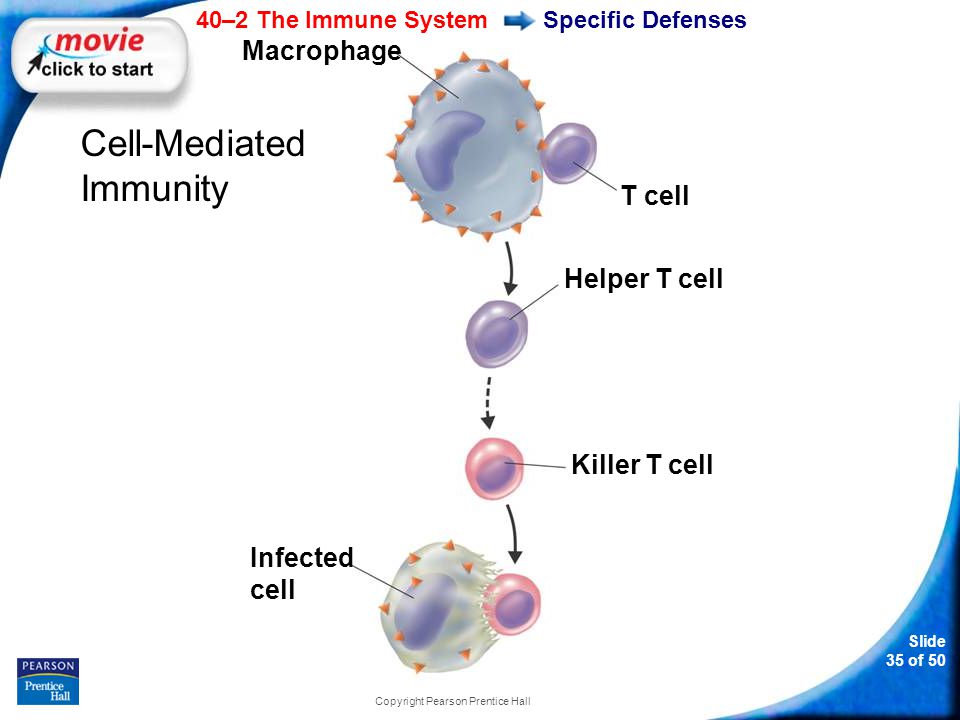Introduction to the Immune System
Much like any other branches of science, the study of the immune
system—or immunology—is constantly changing and a work in
progress. As generations pass, the process of evolution continues
to happen in the immune system, increasing the resistance against
pathogens that enter in our body.
When we refer to the immune system, we usually relate it to protection
of the body against diseases. To expound on that idea, the immune
system protects our body from invasive objects, or pathogens,
such as viruses and bacteria. More importantly, this system has the
ability to identify "local" (or from our body) tissues from foreign
tissues. Once some pathogen enters our body, an attack is commenced
by the immune system to combat it.
Note: As you go through the site, you can toggle the background
by clicking or tapping on the section. Hopefully, this gives easier
emphasis and readability on what you are currently reading. Thanks,
stay healthy!
How This System Functions
A pathogen can enter in our body by contact to an infected person or
object or through inhalation. Some are even transmitted by insects
especially mosquitoes.
To prevent invasion of pathogens in the first place, the barriers of
the body known as nonspecific defenses block them from entering.
In the event that the pathogens do enter the body, the immune system
initiates an inflammatory rsponse, which causes redness,
swelling, or some burning sensation on the site where a foreign object
entered your body or where an insect bit. When these pathogens
got to circulate within the body, then the whole body may react by
inducing fever.
Then, to prevent most of the pathogens from causing abnormalities in
the body or simply to become resistant against these, the
immune system goes through many and long processes. However, these
processes provide long-term benefits to the body since the body
knows how to deal with specific pathogens. The memory cells
are the ones responsible for this phenomenon. See
for the processes involved.
With the specific defenses, the body learns to deal with the pathogens
before we get to feel the effects and the sickness. This is the
reason why vaccination is very helpful to prevent being
exposed to the full-blown disease. Vaccination is the exposure
of our body to a part of a pathogen that really doesn't harm our
body. By being exposed to even some of the pathogen, our body is "fooled"
to stimulate the immune response as if the pathogen really existed.
In this way, our body knows how to defend against these pathogens
when the actual ones do enter our body.
Keeping the System Strong
While the scientific link of lifestyle leading to a stronger immune function
is in question, maintaining a healthy lifestyle may still prove
helpful in protecting our body against pathogens!
As you may have heard, the intake of Vitamin C is very beneficial in
boosting your immunity by helping your body to produce white blood cells to
fight off infection. Citrus fruits, like oranges and lemons, as well
as vegetables such as spinaches and gingers, are foods rich in Vitamin
C. Intake of Vitamin E is also important as it is a powerful antioxidant.
Antioxidants removes damaging oxidizing agents which may play a role
in diseases, one of which is cancer. It can be found in nuts and spinaches.
Sleeping is also very, very important in protecting your body against
illnesses. During sleep, your body produces cytokines, which are proteins
and may induce fatigue to promote sleep, to fight infection. With lack of sleep,
antibodies that defend against infections are reduced, leading to sickness.
Lack of sleep is also linked to increased risk of obesity and diabetes.
Lastly, to prevent infection, always maintain a good and proper hygiene.
Always wash your hands thoroughly especially after you touch your phone or after
going to the bathroom.
Facts and Trivia
Vaccination came from the Latin word vacca, which means cow.
Cowpox virus was used to prevent smallpox, which back then was widespread
and fatal.
Before vaccination, there was variolation, which came from
the Variola virus that caused smallpox.
Humorism was the basis of contracting a disease before Louis Pasteur
initially proved the Germ Theory. In this belief, an excess or lack of
"humor" or liquid substance—which included the blood, yellow bile, black bile,
and phlegm—caused impairments and illnesses.
Laughter decreases the stress hormones in your body. This, in turn,
increases immunity and resistance against illnesses.
There are chances that your immune system will attack even the tissues in the
body. When these happens, a person has an autoimmune disorder.
While a moderate amount of exercises is very healthy and beneficial to your
body, a very high amount may lead to muscle damage and increased risk to
illness.
Mythbuster of the Moment
Want to quiz yourself on one of the eight myths related to the immune
system? Press the button whenever you are ready! If you were not convinced
with the right answer, feel free to check the reference links below. The questions
are easy. Good luck!


